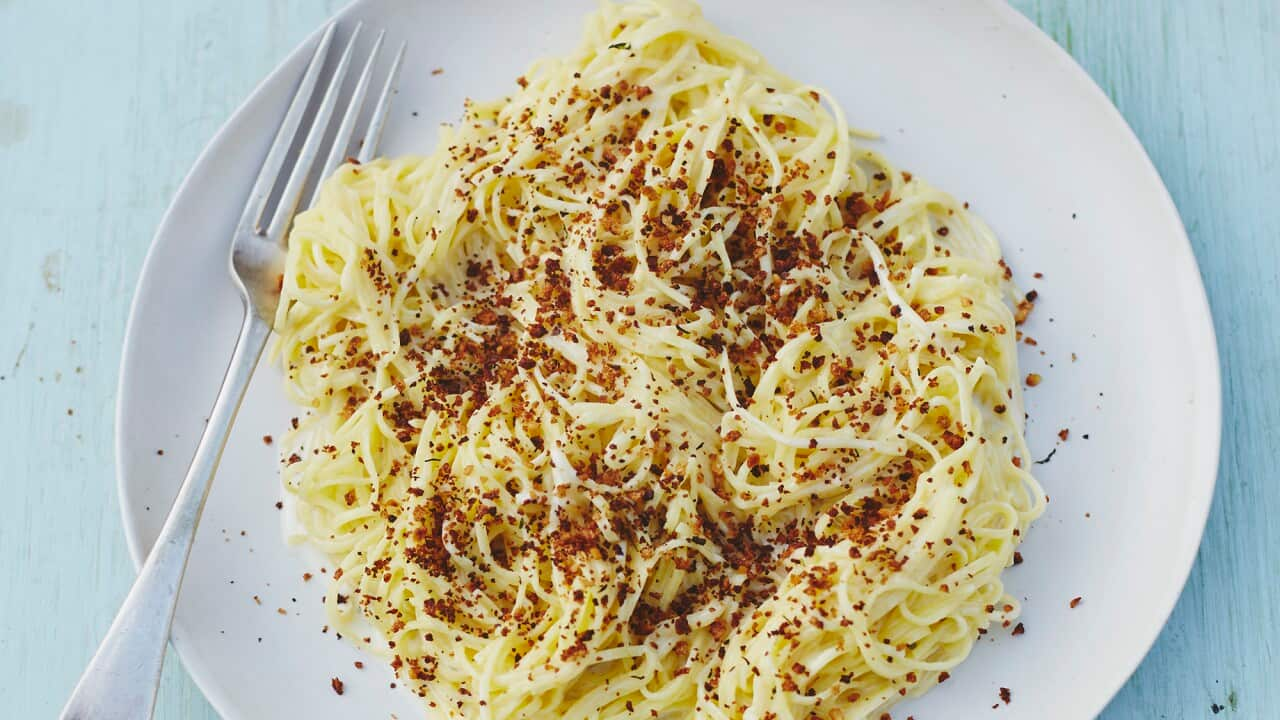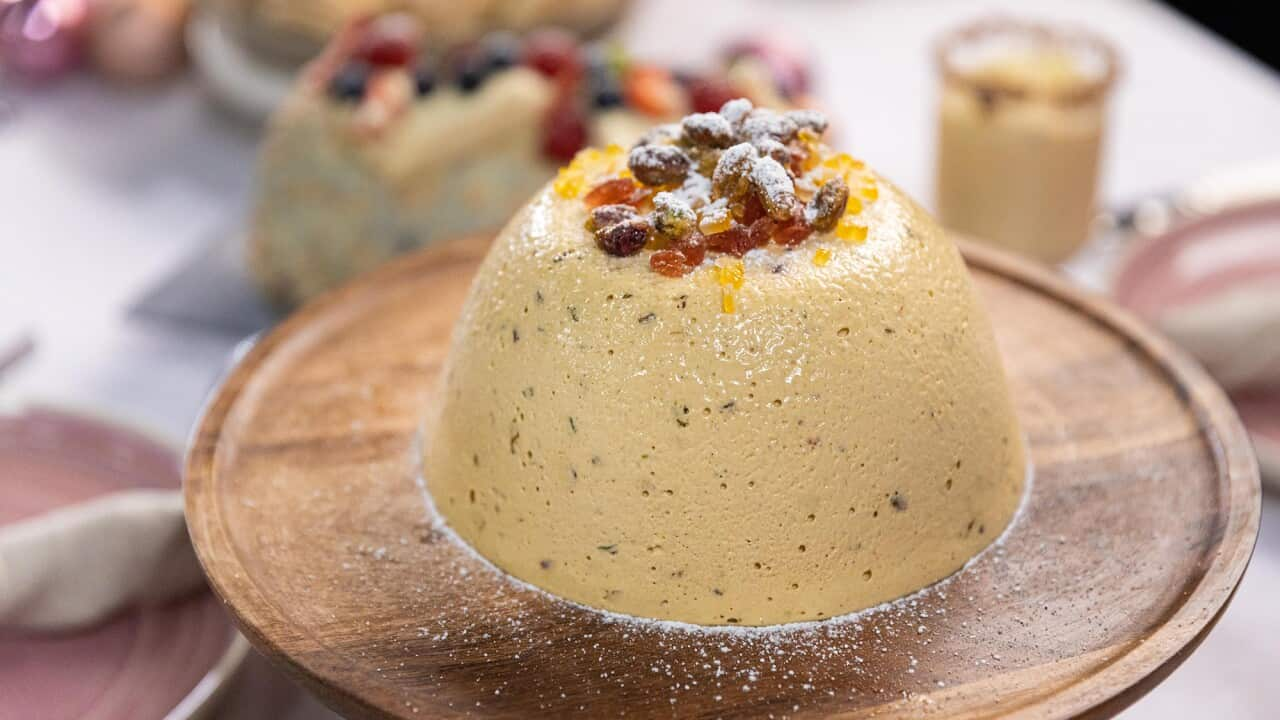serves
8-10
prep
45 minutes
cook
45 minutes
difficulty
Mid
serves
8-10
people
preparation
45
minutes
cooking
45
minutes
difficulty
Mid
level
In all the years I’ve been blogging, I can’t remember ever featuring my mother. How very Freudian! Jokes aside, I’m proud to present Mrs G’s simple spanakopita with homemade filo. There is a real skill involved in getting the right consistency with filo and my mother uses a plasti to roll her sheets out, which is very similar to a rolling pin, except it’s long and thin, and resembles a curtain rod. If you want super-thin sheets, use a pasta machine to help out. My mother likes to roll her sheets out quite large, fill them up and shape them into a coil before cooking them in a tapsi (Greek round baking tin). So this pie is similar to traditional spanakopita, but like all dishes, they vary.
Ingredients
- 450 g (3 cups) plain flour, plus extra, for dusting
- 80 ml (⅓ cup) olive oil, plus extra, for drizzling
- 1 tsp salt
- ½ tsp white sugar
- 250 ml (1 cup) water
Filling
- 1 kg English spinach, washed, stems removed
- 2 tbsp salt
- 250 g feta
- 100 g ricotta
- 2 eggs
- 2 tsp chopped dill leaves
- 1 tbsp chopped mint leaves
- pinch of white pepper
Resting time 10 minutes
Instructions
To make the filo, place the flour in a large bowl. Add the olive oil and, using your hands, rub through the flour until completely combined. Add the salt, sugar and 250 ml (1 cup) water, and stir to form a loose dough. Add more water if necessary.
Turn the dough out on a floured surface and knead for 10 minutes or until soft and elastic. Return to the bowl, then cover and rest for 10 minutes.
Meanwhile, to make the filling, place the spinach in a colander and sprinkle over the salt. Stand for 10 minutes, then squeeze the excess water from the spinach. Place the spinach in a bowl with the feta, ricotta, eggs, herbs and pepper. Stir to combine and set aside.
Preheat the oven to 200ºC. Divide the dough into 3 even pieces. Place one piece of dough on a floured surface. Using a plasti, wooden curtain rod or rolling pin, roll out the dough to form a circle. Continue rolling, lightly dusting with flour between each roll, until 2mm-thick (roughly 50 cm diameter). Drizzle a little oil over the filo and place one-third of the spinach mixture at one end, leaving a 3 cm border. Gently roll up the filo to enclose the filling, ensuring it is shaped like a coil. Place in a greased 28 cm round baking dish.
Repeat the process with the remaining dough and filling, placing the coils in separate pans. Generously brush oil over coils and bake for 45 minutes or until golden. Remove from the oven and rest for 10 minutes. Slice and serve warm.
Recipe from by Peter Georgakopoulos, with photography by Peter Georgakopoulos.
Cook's Notes
Oven temperatures are for conventional; if using fan-forced (convection), reduce the temperature by 20˚C. | We use Australian tablespoons and cups: 1 teaspoon equals 5 ml; 1 tablespoon equals 20 ml; 1 cup equals 250 ml. | All herbs are fresh (unless specified) and cups are lightly packed. | All vegetables are medium size and peeled, unless specified. | All eggs are 55-60 g, unless specified.
In all the years I’ve been blogging, I can’t remember ever featuring my mother. How very Freudian! Jokes aside, I’m proud to present Mrs G’s simple spanakopita with homemade filo. There is a real skill involved in getting the right consistency with filo and my mother uses a plasti to roll her sheets out, which is very similar to a rolling pin, except it’s long and thin, and resembles a curtain rod. If you want super-thin sheets, use a pasta machine to help out. My mother likes to roll her sheets out quite large, fill them up and shape them into a coil before cooking them in a tapsi (Greek round baking tin). So this pie is similar to traditional spanakopita, but like all dishes, they vary.









